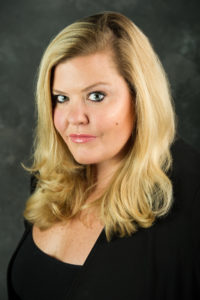Attention New York Employers: First Deadline for New Sexual Harassment Policy and Training Requirements is October 9th
In April 2018, Governor Cuomo signed the 2019 New York State budget, which includes sweeping new requirements for sexual harassment policies and training for private employers of all sizes. The October 9th deadline for all New York State employers to create, publish and implement sexual harassment policies is fast approaching. Even more burdensome for employers in New York State, is the January 1, 2019 deadline for all employees to have completed sexual harassment training (NOTE: this deadline has been extended to October of 2019, as noted in our blog update here). The next phase of implementation for the New York City area begins on April 15, 2019. The New York City training mandate includes far more extensive training requirements that will force employers to invest in sexual harassment training beyond cursory videos or training materials.
While the legislation mandating that employers have a policy and institute training was passed on April 12,th the New York State Department of Labor only recently released its model sexual harassment policy and training program to clarify the requirements and guide employers on how to comply with the new laws. The supplemental model information includes a sample sexual harassment policy, a model complaint form, standards for the sexual harassment policy and training, a model training program and a list of frequently asked questions about the new requirements.
New York State requires that your sexual harassment policy must, at a minimum, provide for the following:
- prohibit sexual harassment consistent with guidance issued by the Department of Labor in consultation with the Division of Human Rights;
- provide examples of prohibited conduct that would constitute unlawful sexual harassment;
- include information concerning the federal and state statutory provisions concerning sexual harassment, remedies available to victims of sexual harassment, and a statement that there may be applicable local law;
- include a complaint form;
- include a procedure for the timely and confidential investigation of complaints that ensures due process for all parties;
- inform employees of their rights of redress and all available forums for adjudicating sexual harassment complaints administratively and judicially;
- clearly state that sexual harassment is considered a form of employee misconduct and that sanctions will be enforced against individuals engaging in sexual harassment and against supervisory and managerial personnel who knowingly allow such behavior to continue; and
- clearly state that retaliation against individuals who complain of sexual harassment or who testify or assist in any investigation or proceeding involving sexual harassment is unlawful.
The Department of Labor’s Model Policy.
The Department of Labor’s Model Complaint Form.
The New York state training requirement must be completed by January 1, 2019 and be performed annually. All new employees must complete the training within thirty (30) calendar days of their new hire date. Employees only working a single day within the calendar year are still required to receive the requisite training. Even part-time, temporary and transient workers must receive training.
The minimum requirements for your annual training are as follows:
- be interactive;
- include an explanation of sexual harassment consistent with guidance issued by the Department of Labor in consultation with the Division of Human Rights;
- include examples of conduct that would constitute unlawful sexual harassment ;
- include information concerning the federal and state statutory provisions concerning sexual harassment and remedies available to victims of sexual harassment;
- include information concerning employees’ rights of redress and all available forums for adjudicating complaints; and
- include information addressing conduct by supervisors and any additional responsibilities for such supervisors.
The Department of Labor’s Model Training Program.
The interactive requirement will undoubtedly force many employers to invest more in their training program (should they already have one in place). The requirement however, does not go so far as to mandate any in-person training. Instead, the training can still be remote or cloud based. For the purposes of the New York state requirements interactivity or employee participation includes:
- Web-based with questions asked of employees as part of the program
- Accommodate questions asked by employees;
- Live trainer made available during the session to answer questions; and/or
- Feedback from employees about the training and the materials presented.
Immediate review of your sexual harassment policy, complaint process and training programs is essential. While New York joins only three other states in requiring sexual harassment training (California, Connecticut and Maine), in this climate more states are sure to follow. While you still have time to act, you must move fast. Given the very specific requirements of these new laws, New York employers should consult with counsel with experience with employment laws and policies to ensure that their policies and training programs are fully compliant.
The information contained in this publication should not be construed as legal advice, is not a substitute for legal counsel, and should not be relied on as such. For legal advice or answers to specific questions, please contact one of our attorneys.
The photo used for this blog post is a stock image. The person(s) in the photo do not represent a client or clients of Obermayer Rebmann Maxwell & Hippel LLP.
 Dove Burns represents employers including corporate clients and executives, professional service providers, multibillion-dollar international restaurant chains, hospitals, municipalities in a variety of high-exposure matters. She has tried numerous cases to verdict and has resolved disputes through arbitration, mediation, and conciliation. Burns has also earned a reputation as a highly respected, in-demand speaker during her career. Burns can be reached at 646-656-0513 or dove.burns@obermayer.com
Dove Burns represents employers including corporate clients and executives, professional service providers, multibillion-dollar international restaurant chains, hospitals, municipalities in a variety of high-exposure matters. She has tried numerous cases to verdict and has resolved disputes through arbitration, mediation, and conciliation. Burns has also earned a reputation as a highly respected, in-demand speaker during her career. Burns can be reached at 646-656-0513 or dove.burns@obermayer.com







